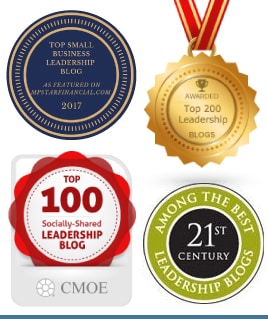I’ve been told several times, by several different people, that I have a tendency to interrupt.
The first time someone told me this, I vehemently denied it. The second time I was given this feedback, I started to get uncomfortable. Maybe there was something to this feedback after all. The third time? That was my cue to take a closer look at this pesky tendency. As Tasha Eurich says in her great book, Insight: The surprising truth about how others see us, how we see ourselves and why the answers matter more than we think, “feedback from one person is a perspective; feedback from two people is a pattern; but feedback from three or more people is as likely to be as close to a fact as you can get.”
We all have behaviours which get in the way of our effectiveness at work. As a leader, it’s especially important to become aware of yours. Because sure as hell, your colleagues and team will be noticing them.
But change can be hard. I’ve found there seem to be four stages in changing a pesky behaviour you demonstrate at work. Knowing each of these stages, and what to do at each stage, can help you progress and kick that unhelpful behaviour to the curb.
They are:
Stage one: You’re blissfully unaware of ‘the thing’ you’re doing at all.
Stage two: You’re aware you’ve done ‘the thing’ – but afterwards.
Stage three: You’re becoming aware you’re doing ‘the thing’ – as you do it.
Stage four: You learn to become aware just before you do the thing – and stop yourself doing ‘the thing’ in the first place.
The stages aren’t linear. I zig zag back and forth between stage two and four these days. But I spend more time in stage three and four than I used to. And that’s progress.
Let’s take a closer look at the stages and what to do when you’re in each one.
Stage One: Blissfully unaware
To start out, you may be unaware you’re doing this thing at all. You’re unlikely to see the impact it has on others. This is called a blind spot – something hidden to us but seen by others. We all have blind spots. The trick is to reduce them over time. This was me before I was given the feedback about my little interrupting habit.
What to do when you’re in stage one:
Raising your self-awareness (a pretty important thing to do as a leader) requires feedback from others. We can’t be self-aware without it. So regularly ask for feedback from your team, colleagues, boss, and other key stakeholders. In particular, ask for the tough stuff – what do you want me to stop doing? What could I do to improve our working relationship? If there was one habit I have a tendency to do which detracts from our working relationship or the team’s effectiveness, what is it?
Uncomfortable? Yes. But research shows even asking for negative feedback improves people’s perceptions of you as a leader. Look closely at the feedback you receive and look for patterns.
Stage Two: Aware after the fact
This is the “doh, I did it again” stage. Once we’re aware of ‘the thing’, we move into an uncomfortable, yet necessary stage of making positive change. We see ourselves doing it, but often when it’s too late. We’ve already done said ‘thing’.
For me, I suddenly noticed myself interrupting people ALL THE DAMN TIME. But I would notice this seconds or minutes after I had interrupted the other person. It was cringe inducing.
At this point, you can expect to feel frustrated as you start to see yourself through this new lens of awareness.
What to do when you’re in stage two:
The trick is not to rush into ‘fix-it’ mode or self-flagellate. Instead, focus on observation. When do you most often demonstrate this behaviour? What situations trigger this bad habit? Who do you tend to do this with the most? What drives this behaviour?
Uncover the what, when, and why.
For me, I noticed my tendency to interrupt others commonly rears its ugly head in three situations – when I enthusiastically agree with what the person is saying, when I vehemently disagree with what the person is saying, or when I’m trying to prove myself with a new client.
This was useful information – and knowing these things helped me move to the next stage.
The other important thing at this stage? Apologise. You can even share that this is a behaviour you are trying to change. Enrol a challenging cheerleader – a peer who can observe this in action and surreptitiously let you know when you’re doing it. I had a colleague offer to rub his nose in meetings when he saw Suzi the Interruptor take centre stage!
Stage Three: Awareness during the fact
This is where you follow your normal pattern of behaviour, but something starts to change. You start to become aware of yourself doing the thing in the moment. Hoorah! This is progress.
What to do when you’re in stage three:
Stop. Take a deep breath and then course correct. Use a predetermined strategy. For example, “When I notice myself doing ‘the thing’, I will xxx”.
When I notice myself interrupting, I will stop talking and say, “Sorry, I’m interrupting you. Go on”. This is my cue to refocus on active listening.
Congratulate yourself when you succeed and keep up your efforts when you fall short.
Stage Four: Awareness before the fact
This is when you start to know in advance those situations likely to cause the bad habit – and begin to prevent yourself from doing it. It’s your amber light to choose your alternative action or behaviour.
What to do when you’re in stage four:
Focus on employing your strategies which help you prevent demonstrating that bad habit or behaviour. This can stop you from falling into the trap in advance.
Once again, give yourself a pat on the back every time you notice yourself not doing ‘the thing’ and doing something better instead..
We all have tendencies that aren’t helping us to be the leader we aspire to be. Luckily, if we can become aware of them, we can then start to address them. None of us are perfect – and neither should this be your goal. But making the effort to raise our self-awareness and reduce those habits that get in the way of effective leadership should be.





Susie, for me this was very timely. Sort of underscored what I was sharing with some friends yesterday. In CoDA I learned that reaction or what they call acting out is usually induced by a past emotional hurt that’s been left unattended, that I’ve bandaged over to protect it and that God wants to heal but I’m avoiding it because to deal with it us too painful. Once a person enters recovery all such bets are off. Acting out is something to notice. One does not have to do anything about it at first, just notice. Then in time the individual come to MV a place if choice. Doe she continue to act out the pain and apply the solution she figured out the first time she felt the pain as a 5 year old kid, a solution that totally does not work as an adult OR does she stop when she feels the pain, let it come because it won’t kill her and then THINK as an adult that she is today and RESPOND appropriately vs just being on auto pilot and act out with the same old way she’s been reacting without getting any good results. Coming to that place of choice is your stage four.
I like your version of the four stages. Thank you fir writing about it. I’ll pass it on to my friends.
ALOHA
Z
My bad habit work-on is finishing peoples sentences. This generates a number of perceptions : I’m not listening; I’m looking to fix your problem for you and I’m too busy. It takes a lot of practice to ditch the habit and the carrot is the great conversations that transpire when I actively listen.
Can relate Richard! Love the benefits you are focusing on when you actively listen. Suzi 🙂